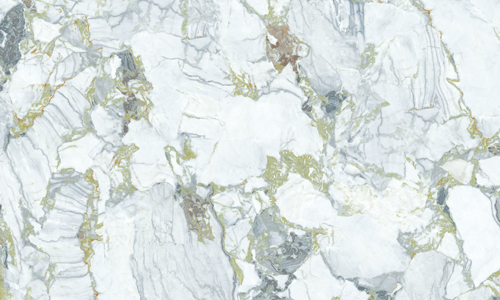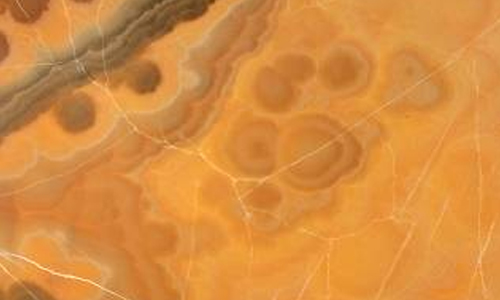Every year, millions of people across China and around the world celebrate the Dragon Boat Festival, also known as Duanwu Festival. Held on the fifth day of the fifth month of the lunar calendar (which usually falls in June), the festival has a history that spans over 2,000 years and is steeped in rich cultural traditions. It is a time of vibrant celebrations, thrilling boat races, and the sharing of delicious food — but there’s much more to this festival than meets the eye.
The Origins: A Tale of Legend and Loyalty
The Dragon Boat Festival is commonly associated with the legend of Qu Yuan, a patriotic poet and statesman from the Warring States period of ancient China. Qu Yuan is remembered for his unwavering loyalty to his country, particularly his resistance against corrupt rulers. When his advice was ignored, he was exiled, and in his despair, he drowned himself in the Miluo River on the fifth day of the fifth lunar month.
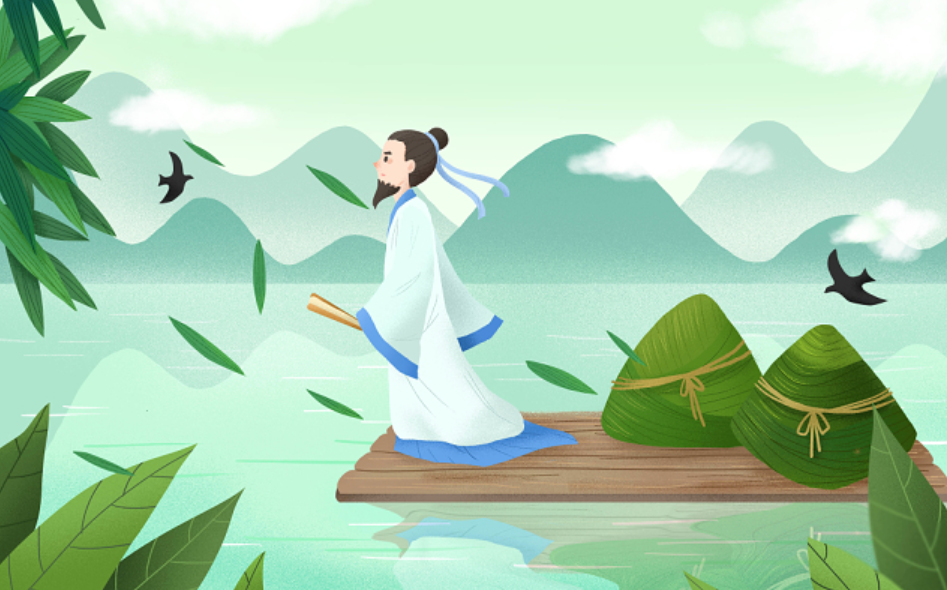
In an effort to save him, local villagers raced to the spot where he was believed to have drowned, beating drums to scare away fish and throwing sticky rice into the water to prevent his body from being eaten. This became the inspiration for the dragon boat races and the tradition of eating zongzi, sticky rice wrapped in bamboo leaves.
The Dragon Boat Races: Speed, Skill, and Teamwork
One of the most exciting aspects of the Dragon Boat Festival is the dragon boat races. These thrilling competitions feature long, narrow boats decorated like dragons, with teams of paddlers working in unison to race to the finish line. The boats are traditionally made of wood, and the races are often accompanied by the sound of drumming, which serves to synchronize the paddlers and energize the teams.
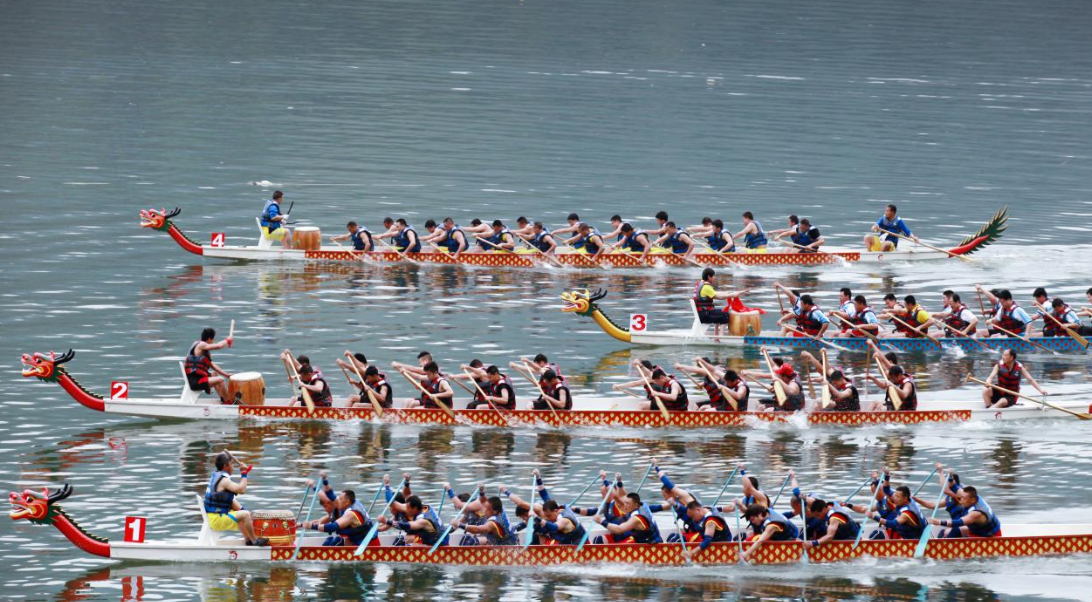
Dragon boat racing is not just a test of speed; it is a demonstration of teamwork and skill. The paddlers must work together in perfect harmony, with each stroke carefully timed to propel the boat forward. The races have become an international phenomenon, with competitions taking place around the world, from Asia to Europe and North America.
The Food: Zongzi – A Tasty Tradition
Another integral part of the Dragon Boat Festival is the preparation and enjoyment of zongzi, sticky rice parcels wrapped in bamboo leaves. These delicious treats are often filled with a variety of ingredients, including salted egg yolks, pork, beans, and chestnuts. The practice of making zongzi is a way to honor Qu Yuan, as it is said that the rice was intended to feed the fish and protect his body.
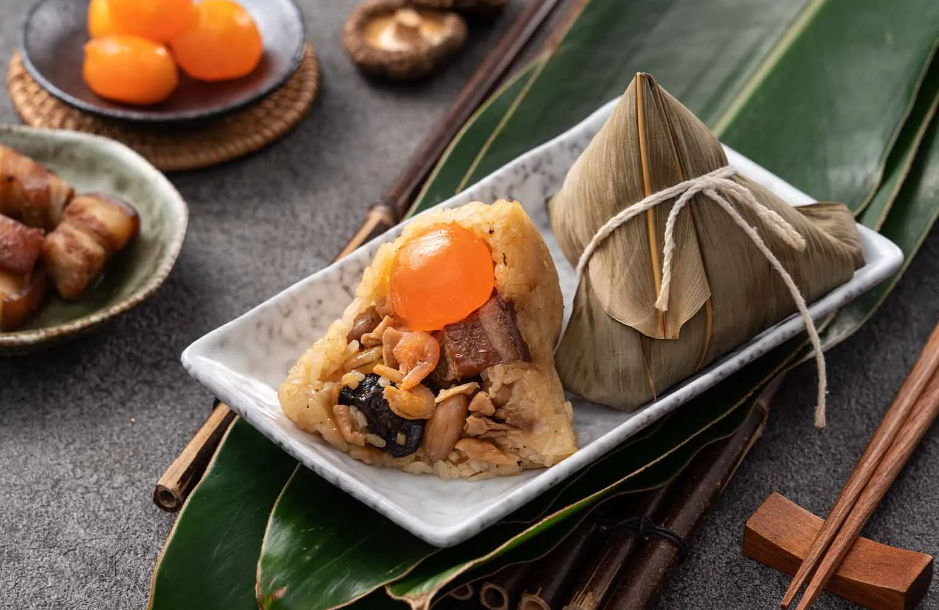
Zongzi is a beloved dish during the festival, and different regions in China have their own variations, depending on local preferences. In some areas, sweet zongzi is made with red bean paste or dates, while in others, savory fillings like mushrooms or salted meat are favored.
Company Celebration: Holiday and Gourmet Packages
Many companies, particularly in China and other parts of East Asia, celebrate the Dragon Boat Festival in a variety of ways. These celebrations often blend traditional customs with modern corporate practices, creating a festive atmosphere while fostering team spirit and enhancing employee engagement. Here’s how companies typically observe the Dragon Boat Festival:
1. Corporate Gifts: Zongzi (Sticky Rice Dumplings)
Another beloved custom associated with the Dragon Boat Festival is the preparation and gifting of zongzi, the traditional sticky rice dumplings wrapped in bamboo leaves. Many companies give their employees zongzi as a holiday gift, either in the form of packaged zongzi or as part of a company-wide feast.
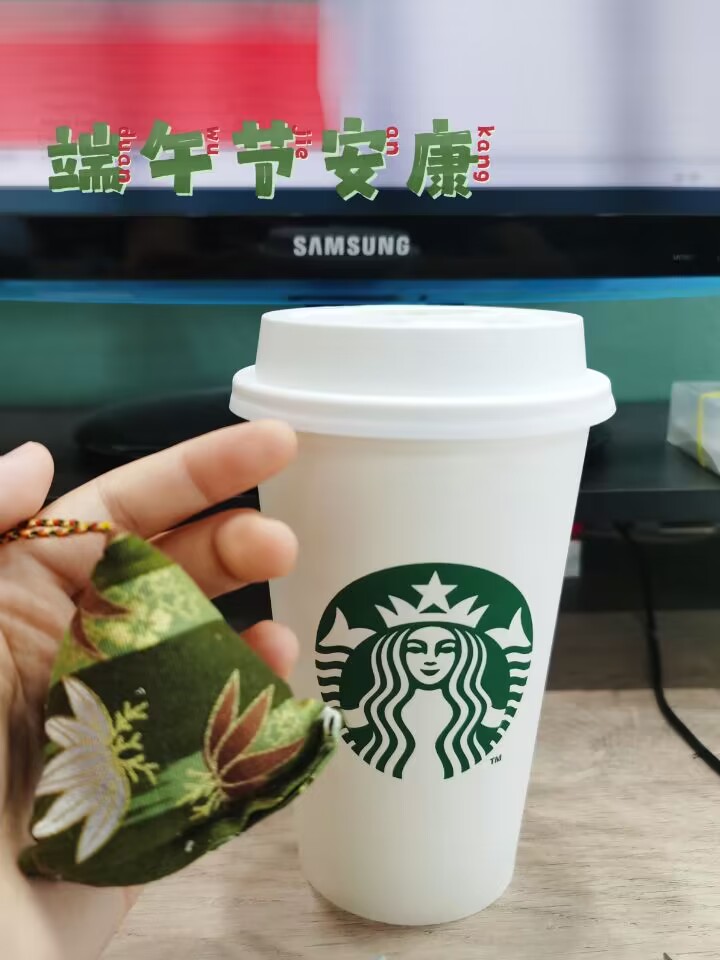
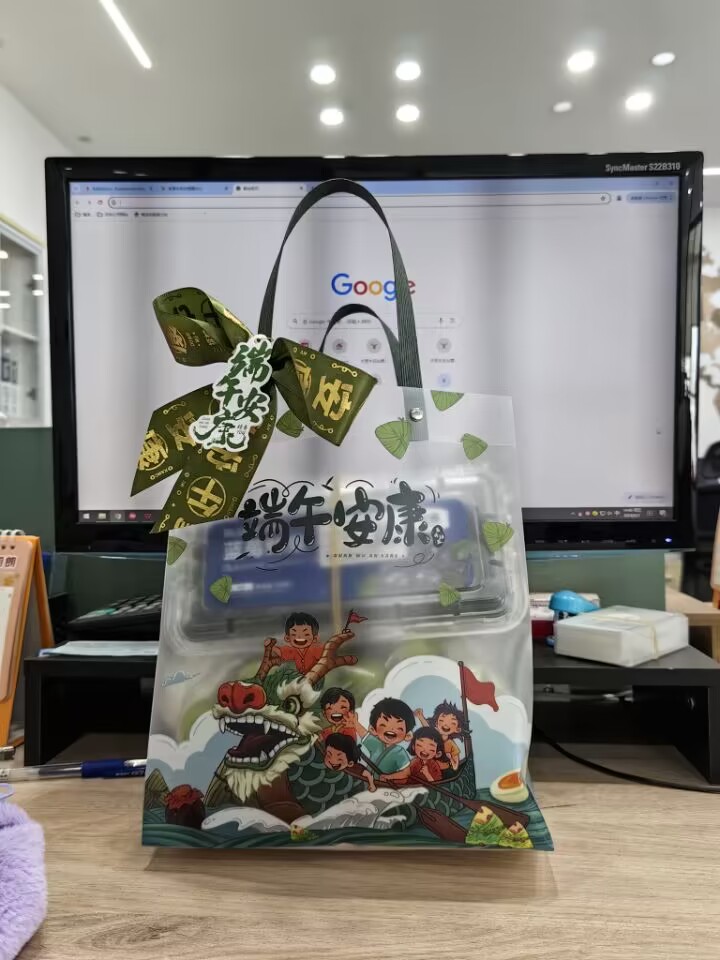
Zongzi are often given as corporate gifts to clients or business partners as well, symbolizing goodwill and prosperity. The gift of zongzi is a gesture of appreciation and respect, making it a meaningful part of the holiday celebrations.
In our company, Fortune East Stone, each employee can not only taste the holiday coffee, but also receive a holiday gift package containing seasonal food such as blueberries, zongzi, and regular toiletries, which is a special holiday blessing!
2. Holiday Breaks and Time Off
In China and some other countries, the Dragon Boat Festival is an official public holiday, and many companies give employees a day off to celebrate with family and friends. Even if it’s not an official holiday in certain regions, companies may choose to grant employees a half-day or allow flexible hours, enabling them to participate in family gatherings or enjoy local festivities.
3. Decorations and Festive Atmosphere
Some companies decorate their offices or workspaces with elements of the Dragon Boat Festival. You might see dragon-themed decorations, bamboo leaves, and vibrant colors like red and gold, which symbolize good luck and prosperity. In more creative or larger companies, the festival might inspire themed events or office parties, where employees can enjoy traditional foods, music, and even dress in festive attire.
4. Public Relations and Branding
For companies, especially those International logistics and exhibition company, the Dragon Boat Festival provides an opportunity to run marketing campaigns or release special products. For example, they might release limited-edition zongzi or other traditional festival foods.
5. Cultural Activities and Workshops
Companies host cultural activities to educate their employees about the traditions behind the Dragon Boat Festival. These could include workshops on making zongzi, learning about the history of the festival. These activities not only promote cultural appreciation but also build team cohesion through shared learning experiences.
Conclusion: A Celebration of Tradition, Unity, and Health
The Dragon Boat Festival is much more than a series of exciting boat races or a day to enjoy delicious food — it is a celebration of history, culture, and the enduring spirit of community. Whether you are watching a race, enjoying a zongzi, or participating in local festivities, the Dragon Boat Festival offers an opportunity to connect with a rich cultural tradition that spans millennia.
About Us
Jessie
Fortune East Stone
📧 Email: sales08@fortunestone.cn
📞 Phone: +86 15880261993
🌐 Websites: www.festonegallery.com | www.fortuneeaststone.com




